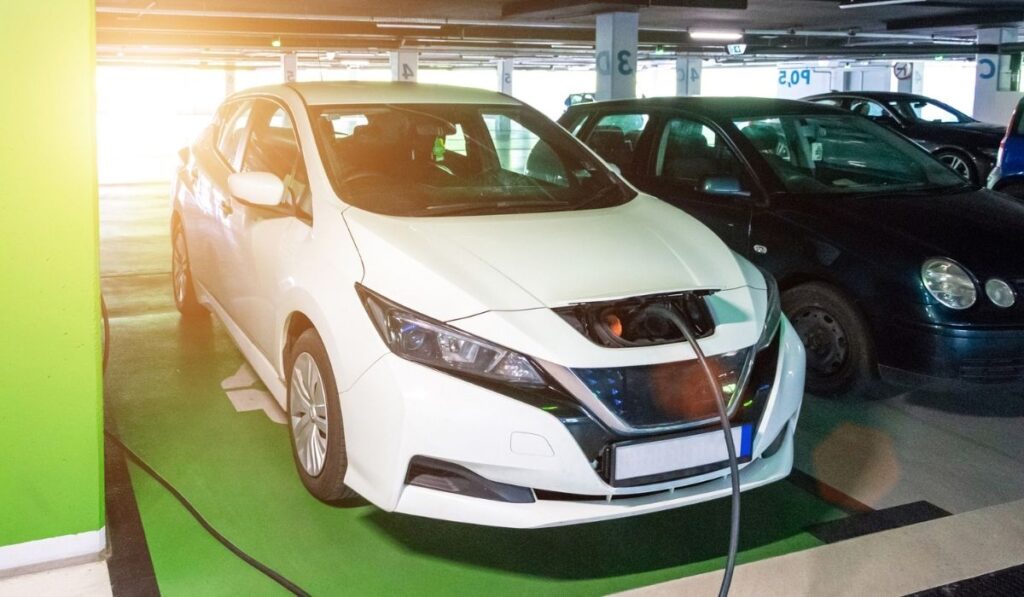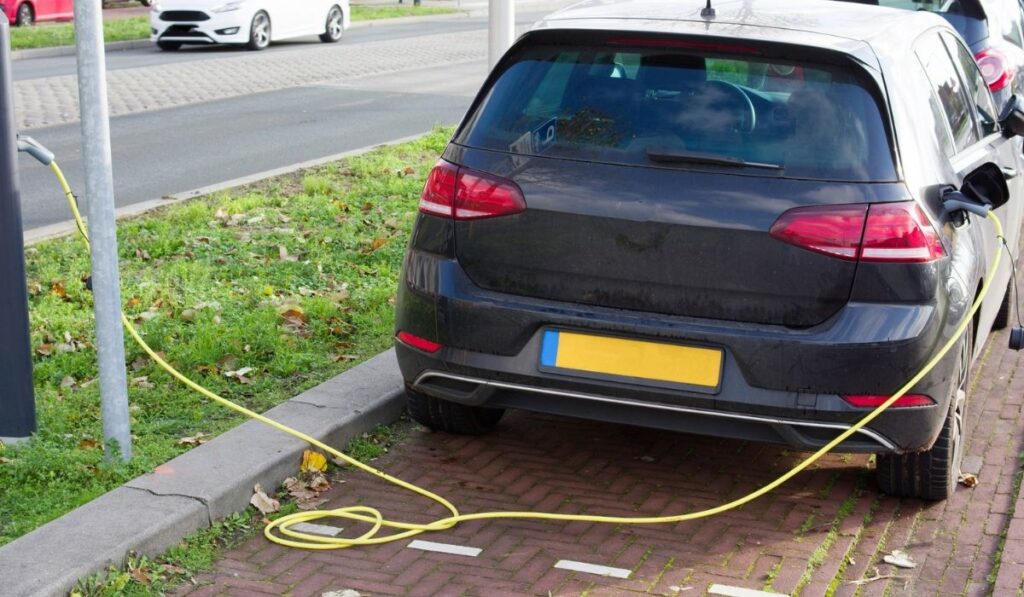The automotive sector is currently undergoing a silent revolution. The electric car was once a far-fetched, unrealistic vision, and now it appears to be a reality that is changing the way we think about going from one place to another. But as we shift toward electric vehicles (EVs), one thing we’ve got to consider is how the cost compares to that of traditional vehicles.
Electric vehicles are generally slightly more expensive in terms of upfront costs (unless government subsidies are available). Maintaining and operating an EV, however, is much cheaper. Fuel is less expensive, insurance is cheaper, and there’s much less maintenance (no oil changes for instance).
To make a fair comparison between EVs and traditional Internal Combustion Engines (ICE), we’ll need to look at several factors. If you want to make the best possible decision and purchase an automobile that matches your needs and budget, keep reading for all the crucial information.
Comparing EVs to ICE Cars

There are various expenses involved with car ownership, regardless of the sort of vehicle you want buy.
If you’re unsure whether an electric vehicle or a gas automobile is a viable choice, it’s crucial to know where your costs will arise and how an electric vehicle might lead to different sources of expenditure and savings when compared to traditional gas cars.
Electric vehicles are slowly but steadily gaining popularity in the United States. The gas-powered car still dominates the market, but EVs are growing in popularity season after season, with around 2% of the market now allocated to them.
Despite the growth, many potential car buyers still have misunderstandings about electric vehicles that keep them from making the switch.
Factors to Consider When Comparing Gas and Electric
To clear the misconceptions, a handful of factors should be considered, including maintenance costs, vehicle longevity, and fuel/ recharging costs of both cars. Let’s take a look.
Overall Costs
Who doesn’t admire a vehicle that is both cost-effective and well-equipped? The cost of maintenance is a significant aspect to consider when comparing electric automobiles with ICE vehicles. This can be accomplished by looking at a few cost-related analyses.
The three-year cost analysis can be used to calculate how much it will cost to buy a car for three years. Financing and insurance costs are eliminated from the comparison to make it as transparent as possible.
The fundamental base pricing of each vehicle’s most basic model is used to calculate the results of this investigation. Any federal tax credits for the two electric vehicles are taken in to account afterwards.
The cars’ purchase prices (including destination charges) are as follows:
- Mini Cooper Hardtop: $24,250
- Mini Electric: $30,750
- Hyundai Kona: $21,440
- Hyundai Kona Electric: $38,330
Maintenance Costs
To do a clear maintenance cost comparison, we can look at AAA’s “Your Driving Costs” study. This analysis helps identify how much you pay per mile in maintenance to drive a vehicle and provides us with a strong baseline from which to build. All of the cars in the study are treated identically.
Over a five-year period, the expenditures are divided into market segment silos or service items such as tires, brakes, oil changes, and repairs.
Since that’s longer than the three-year timescale, the numbers in this analysis may be exaggerated beyond what you’d expect from these cars in three years.
Not so surprisingly, EVs are less expensive to maintain because they don’t require oil changes or other engine maintenance. The following are the maintenance costs:
- Mini: $0.0853 per mile/ $3,839
- Mini Electric: $0.066 per mile/ $2,970
- Hyundai Kona: $0.0909 per mile /$4,091
- Hyundai Kona Electric: $0.066 per mile / $2,970
Insurance Cost Difference Between Electric & Gas Cars
Insuring a gas vehicle is, on average, $418 cheaper than insuring an electric vehicle. As a result, electric vehicles are more expensive to insure than conventional vehicles.
Charging an Electric Vehicle Versus Gas Refill
In USA, the average yearly cost of charging an electric vehicle is $755, which can be compared to $1,615 — the average cost of refilling a gas car. Prices usually differ significantly across states and nations.
According to a recent study done by Anderson Economic Group, driving 100 miles in a mid-priced internal combustion automobile that gets 33 miles per gallon at a cost of $2.81 a gallon would cost $8.58 in total.
However, a mid-priced EV, such as the Nissan Leaf, would cost $12.95 to travel 100 miles, including the cost of recharging the vehicle at a public charging station. So this study suggests that fueling an EV is often more expensive than fueling a traditional gas vehicle.
Another recent study, however, found that electric vehicles cost about half as much to operate as gas-powered cars in the US. So the findings in this regard are varied, and the results often depend on the specific vehicles tested as well as the current costs of fuel and electricity.
Tax Rates
When it comes to tax rates, the countless benefits and cost-cutting opportunities that come with an Ev come to an end.
Electric vehicle taxes are often higher than gas car taxes, without taking incentives and subsidies into consideration. The average cost of taxes for a gas car in the United States is $545 per year, compared to $827 for electric vehicles.
When government and state incentives for electric cars are factored in, however, this figure is usually lower. In certain locations, incentives range from nothing to over $900.
Energy Consumption
To compute the energy consumption of both types of car, the EPA’s gallons and kWs used per 100 miles can be utilized. The lower the number, the more efficient the vehicle is for both these units.
The Mini Hardtop gets greater gas mileage than the Kona, but the Kona Electric is more efficient than the Mini Electric, as you can see here.
- Mini: 3.2-gal/100 miles
- Mini Electric: 31-kWh/100 miles
- Hyundai Kona: 3.3 gal/100 miles
Depreciation
Have you ever wondered how well an electric car will maintain its value if you make the transition now? It’s a complicated topic because estimating depreciation is based on prior experience, demand, vehicle availability, brand reputation, etc.
We’ve always been advised that age and mileage is only a rough indicator of a vehicle’s condition. The same is true for electric automobiles.
According to the website iSeeCars, which specializes in collecting statistics about the new and used car markets, electric automobiles in general depreciate far more quickly than conventional cars after three years.
Are Electric Cars More Expensive in Comparison to Gas Cars?

When looking at the calculations and estimates above, the gas powered cars are cheaper to operate over the first three years than electric. Then you need to factor in state and local incentives if those are available.
Plus, as the years progress, the lower cost of operating an electric vehicle (fuel and maintenance) continue to accrue. However, there is an issue here we must consider, which is that comparing EVs and gas vehicles isn’t a straight comparison for most electric cars on the road.
This is because there are no gas models of some electric cars like the Tesla Model 3s. To combat this issue, buyers have to pit them against approximately similar gas vehicles.
Regardless of the concerns, the estimates above show that the overall purchase costs of electric vehicles, as well as their insurance, depreciation and tax charges, are greater than gas vehicles.
However, maintenance for EVs is significantly less expensive than what we may pay for gas automobiles.
Yet, we must remember that their contribution to environmental protection and the prevention of global warming by producing fewer planet-warming emissions makes it well worth its high cost for many buyers.
If you want to compare the costs of an EV versus a gas vehicle, the US Department of Energy’s website has a convenient tool that compares the overall costs of numerous vehicles at once based on your annual driving habits and other data, and it even considers your location so that the fuel-cost data can be adjusted to reflect local gas and electricity prices.
Summary
Despite the fact that we are in the midst of the world’s largest electric car revolution, the costs associated with EVs and other aspects that distinguish them from gas-powered vehicles paint a different picture.
We must understand that the new technological advantages that come with EVs have also resulted in much higher purchasing prices.
Furthermore, the taxes, insurance, and depreciation rates for electric vehicles are all greater than for gasoline-powered automobiles.
So you may enjoy all of the benefits of EVs and a long-lasting ride, but at a significant upfront expense. The minimal maintenance costs and pleasant ride, on the other hand, may well be worth it.
